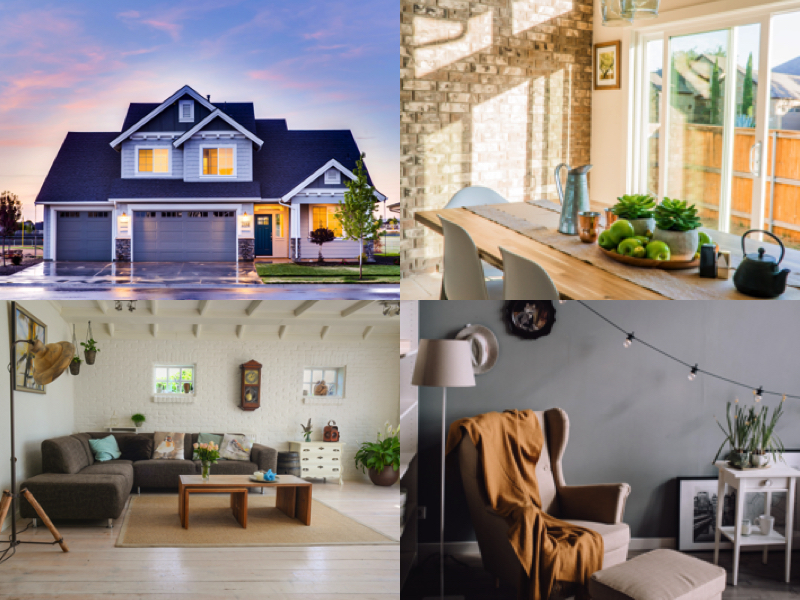Are Home Alarm Systems Worth the Investment?
Every homeowner wants to feel safe. That’s why alarm systems are becoming more common in UK households. But are they really worth the money, or are they just another expense? Let’s look at what they actually offer.
Burglar alarms do more than just make noise. They act as a visible deterrent, stopping many intruders before they even try the door. And if someone does try their luck, these systems alert you, and often the authorities, within seconds. Add to that the knock-on benefits, like lower home insurance premiums and a stronger resale appeal, and you’re already ahead.

Protection vs. Price
Yes, installation and monitoring come with costs. But what’s the price of coming home to a broken window and missing valuables? Or worse, knowing your family felt unsafe?
Many people only invest after a break-in nearby. But by then, the damage is done. Prevention often costs less than the aftermath.
There are plenty of real-world examples where home alarm systems have helped prevent break-ins, either by scaring off intruders or ensuring a quick response. It’s hard to put a price on that kind of protection.
Emotional and Financial Value
You can’t ignore the peace of mind. Whether it’s knowing your kids are safe while you’re at work, or checking on your house via app while on holiday, it matters.
And financially, many insurers offer a decent discount if your home has a certified alarm. Over time, those savings chip away at your upfront costs.
Understanding the Cost of Alarm Systems
Alarm systems aren’t one-size-fits-all. Prices vary depending on what you choose. So what exactly are you paying for?
You’ve got the equipment: sensors, cameras, control panel. Then there’s installation, DIY or professional? And don’t forget monthly monitoring fees if you go that route.
If you’re trying to budget, it’s useful to understand the full cost of a home alarm system including setup, monthly fees, and any maintenance required.
Factors That Affect Pricing
- System Type: Wireless, wired, or smart? Monitored or unmonitored?
- Installation: DIY kits can start around £200. Professional setups? More like £800 and up.
- Maintenance: Batteries, software updates, occasional repairs.
- Extras: Smart features, extra cameras, remote access.
The more complex the setup, the higher the price. But also, the more protection you get.
Long-Term Savings
Here’s where the investment pays off:
- Reduced insurance premiums.
- Lower risk of burglary = fewer losses.
- Some even claim increased property value.
Spread over five or ten years, these systems often pay for themselves.
Key Features That Make an Alarm System Effective
Not all systems are created equal. You want one that does its job quietly, reliably, and when it matters.
Must-haves include:
- Door and window sensors
- Motion detectors
- HD cameras with night vision
- Mobile app for remote access
- Battery backup
Monitoring and Emergency Response
Monitored systems mean someone’s always watching. Unmonitored ones rely on you or your neighbours to act.
With a monitored system, alerts go straight to a control centre. They can call the police, fire brigade, or your listed contacts instantly. That kind of response can be the difference between minor damage and a disaster.
Smart and Scalable Solutions
Modern alarms can grow with you. Got a bigger house now? Add more sensors. Want integration with Alexa or smart lights? Easy.
Tech reviewers love how easy today’s systems are to use. Installers point out how adaptable they are, even for awkward layouts or older homes.
DIY vs. Professional Installation
Which route is best? DIY might save money up front, but pro installs come with peace of mind.
Pros and Cons of Each Approach
DIY:
- Cheaper
- Flexible
- Good for tech-savvy users
Professional:
- Expertly fitted
- Covered by warranties
- Often required for insurance discounts
It depends on your confidence and your priorities.
Benefits of a Home Alarm System
Aside from preventing crime, alarms do a lot more:
- Protect property and loved ones
- Lower insurance premiums
- Provide real-time monitoring
- Act as a visible deterrent
Recent police data shows homes with visible alarms are significantly less likely to be targeted.
Beyond Security – Added Value
Today’s systems offer more than just sirens. Think smart locks, linked lighting, video doorbells. Some let you speak to delivery drivers remotely or check when your teen got home.
And with features like app control and regular system health checks, they’re designed for modern living.
What to Consider Before Buying a Home Alarm System
Before signing any contracts, ask yourself:
- How big is your property?
- What’s your budget?
- Are you in a high-risk area?
- Do you want smart features?
- Who will respond to alerts?
Also check reviews. Is the provider known for good customer service? Fast responses? Fair pricing?
Are Wireless Systems Secure?
Some worry wireless means it is easy to hack. But most modern systems use encrypted signals, backup frequencies, and app verification.
In truth, they’re often more secure than outdated wired setups. Plus, they’re easier to upgrade.
Alarm Systems in the UK – What You Need to Know
In the UK, insurance companies increasingly expect homes to have basic security measures. This doesn’t mean you need the fanciest kit, but you do need something reliable.
Local police forces often recommend NSI or SSAIB-approved systems. On average, a full professional setup costs around £800 to £1500, plus monthly monitoring if chosen. DIY options can be under £500 but may lack support.
And don’t forget, alarm signs and stickers still help. Burglars tend to choose the easier target.
Bottom line? If you value peace of mind, family safety, and long-term savings, a home alarm system is a smart, protective step. Not just for now, but for the years ahead.

Monica Costa founded London Mums in September 2006 after her son Diego’s birth together with a group of mothers who felt the need of meeting up regularly to share the challenges and joys of motherhood in metropolitan and multicultural London. London Mums is the FREE and independent peer support group for mums and mumpreneurs based in London https://www.londonmumsmagazine.com and you can connect on Twitter @londonmums


